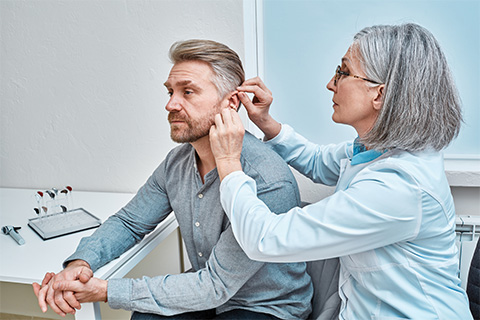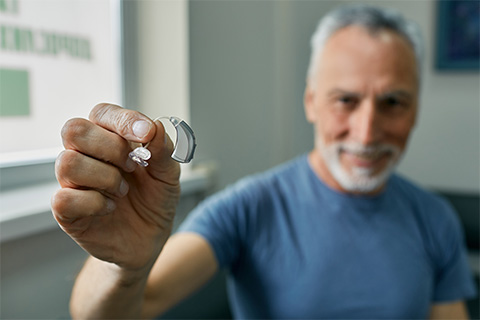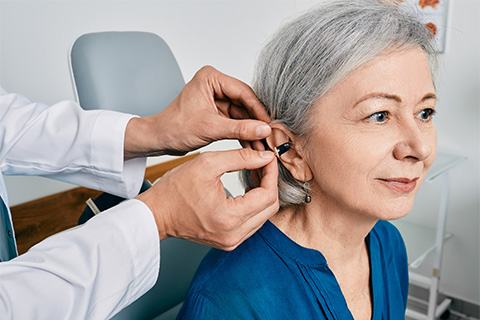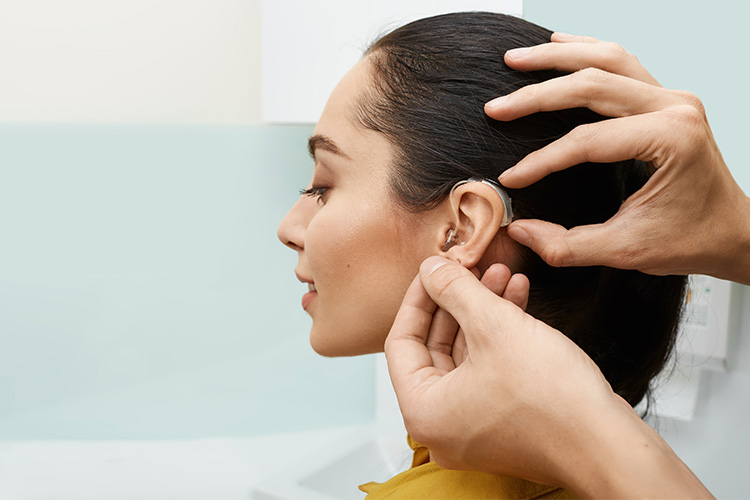We use cookies to make your experience better. To comply with the new e-Privacy directive, we need to ask for your consent to set the cookies. Learn more.
Hearing Aid Maintenance: Ensuring Optimal Performance
Caring for your hearing aids is paramount to preserving their exceptional performance and averting any potential complications that may arise from everyday use. Beyond mere functionality, routine upkeep and cleaning can significantly elongate the lifespan of your hearing aids, allowing you to capture the rich tapestry of life's sounds on a daily basis.
Guidance for Prolonging Your Hearing Aid's Longevity
This page serves as an invaluable resource, furnishing insights into effectively maintaining and extending the life of your hearing aids. A focal point is the significance of regular cleaning and maintenance in thwarting damage caused by debris and moisture. These factors, if left unchecked, can trigger wear and tear within the hearing aids' delicate components. Furthermore, it underlines the potential health risks stemming from inadequate maintenance, including the possibility of ear infections.
Tips to Enhance the Lifespan of Your Hearing Aids
Appropriate maintenance is the foundation for safeguarding against damage from debris and moisture accumulation, which can inflict harm upon the sensitive components of the hearing aids. Moisture, in particular, can pave the way for the proliferation of harmful bacteria, potentially leading to ear infections and other health complications. Adhering to the following tips can ensure the longevity of your hearing aids:
- Utilize your hearing aid cleaning kit to maintain cleanliness. Employ a gentle, dry cloth, refraining from household cleaners or solvents.
- Before handling your hearing aids, ensure your hands are clean and dry.
- Remove your hearing aids before partaking in activities such as showering, bathing, or swimming. The moisture levels in these environments can induce damage.
- Store your hearing aids in a dry and cool location when not in use. Ideally, place them in the Hearing Aid's Case or Drying Cup. For extended periods of non-use, detach the batteries and store them separately.
- Keep your hearing aids shielded from direct sunlight and excessive heat.
- Periodically clean your ears to prevent excessive ear wax buildup.
- Schedule consistent maintenance and cleaning sessions with your Licensed Auricle Professional.
- Regularly replace the batteries of your hearing aids.
- Consider using protective cases or films to avert damage resulting from accidental drops or impacts.
- Opt for professional assistance for repairs. Attempting DIY repairs could jeopardize the intricate electrical systems within your hearing aids, leading to expensive fixes or irreparable harm.
Elevate Your Hearing Aids' Longevity
By adhering to these guidelines, you can effectively extend the lifespan of your hearing aids and maintain them at peak performance levels. To address any inquiries or concerns about your hearing aids, do not hesitate to reach out to your dedicated Auricle Professional, who is poised to provide the assistance you need.
Caring for Your Hearing Aid Batteries: Maximize Their Potential
To ensure optimal performance and longevity of your newly acquired hearing aid batteries, adhere to these valuable guidelines:
- Preserve the Plastic Tab: Keep the plastic tab on each battery pack until you're ready to use them. This tab safeguards the battery's freshness while in storage. As soon as it's removed, the battery activates, initiating its "juice" depletion. To extend battery life, wait five minutes after tab removal before inserting the battery. Recent research indicates that this delay can add 2-3 extra days to the battery's lifespan.
- Prioritize Clean Hands: Wash your hands thoroughly before replacing your hearing aid battery. This practice helps maintain battery hygiene and ensures proper contact.
- Optimal Storage Conditions: Store spare hearing aid batteries in a dry, room-temperature environment. Extreme temperatures and high humidity levels are detrimental to battery life. Never store batteries in the refrigerator or bathroom, as these settings can compromise their efficiency.
- Aerate Your Device: When not actively using your hearing aids, leave the battery compartment open. After powering off the hearing aid, place it in a safe and dry location with the battery door ajar. This practice permits excess moisture to dissipate, reducing strain on the battery and preventing corrosion that could harm the device.
- Extended Non-Use Precautions: If your device won't be in use for an extended period, remove the batteries entirely. This precautionary step mitigates the risk of corrosion and damage arising from trapped moisture.
- Harness the Power of Dehumidifiers: Consider investing in a hearing aid dehumidifier or dry storage kit. These aids not only protect your hearing aid and its batteries but also offer a secure repository for your devices during periods of non-use.
Empower Your Hearing Aid Investment
Adhering to these practices will undoubtedly extend the lifespan of your hearing aids and batteries. At Auricle, we highly value both your hearing experience and your patronage. Should you have any inquiries or concerns regarding your hearing aids, don't hesitate to reach out to your dedicated Auricle Professional.




